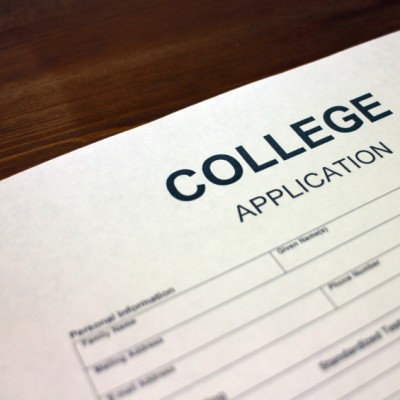slides: College Admissions: Month-by-Month Guide for High School Seniors





 Email to a friend
Permalink
Email to a friend
Permalink
Wednesday, July 08, 2015
Jodi Walder, GoLocalPDX College Admissions Expert
I am a big fan of working ahead to reduce stress. I think it easier to have a pleasant senior year if you complete a good chunk of your college application tasks over the summer. The below timeline is an aggressive one, designed to move you through the steps you need to deal with to apply for college. (These are not school specific deadlines. You need to double check those on the website of every school you apply to.)
See Slideshow Below: Month-by-Month Guide for High School Seniors
___________________________________
Jodi Walder-Biesanz is the founder of Portland, Oregon-based College Admission Coach LLC which helps students identify and gain admission to right-fit schools where they will thrive academically and personally. Contact her at [email protected].
Related Slideshow: Month-by-Month Guide for High School Seniors
This timeline will keep your college applications on track throughout senior year.

Prev
Next
All Year
- Take a rigorous senior year class schedule.
- Work hard all year—second-semester grades can affect scholarship eligibility and an admission offer can be revoked if your grades fall significantly.
- Stay involved in after-school activities, and seek leadership roles if possible.

Prev
Next
June & July
- Get a copy of your high school transcripts with final grades through end of junior year, unweighted and weighted GPA, and class rank if your school provides it. Review the transcript and make sure everything is accurate. Alert your school if there are needed corrections.
- Review your standardized test results and decide if you plan to retake in the fall. If so, make a prep plan.
- Based on your grades and test scores, re-evaluate the list of colleges you’re thinking of applying to. Narrow the list. (6-9 is a good range for most students, although fewer or more could be appropriate in your particular circumstance.)
- Research school scholarships.
- Determine which schools accept the Common Application and which schools require you to fill out their own application.
- Compile a list of dates admissions representatives from schools on your list are travelling to your town and schedule admission interviews (if the school offers them and you choose to have them).
- Student athletes should fill out the NCAA eligibility form on the web and send them end-of-junior-year transcripts (if this wasn’t done already).
- Begin collecting material for your arts, audition or sports supplement
- Student athletes should prepare an athletic resume and reach out to coaches.
- Student performers should prepare artistic resume, statement of artistic intent and make a calendar of audition dates.
- Student writers should prepare writing samples and a statement of artistic intent.
- Do social media cleanup (this is sometimes called “reputation management”).
- Brainstorm essay topics and then draft, edit and finalize common application personal statement (target 500-650 words).
- Complete detailed research about schools on final list: two classes, two professorss and their research, two clubs, a school tradition, and at least one other buried treasure.

Prev
Next
August
- Make a calendar with school application and scholarship due dates, include supplemental essay questions and word count if known.
- Fill out common application (less supplements) and start school specific applications for those that do not take the common app. Be sure to write down your passwords in a safe place.
- Draft supplemental essays.
- Research outside scholarships and decide which are a match.
- Sign up for additional standardized testing, if needed (Sept-Nov test dates).
- Decide if you are applying to one school early decision, and any other schools early action.

Prev
Next
September, October
- Meet with your school counselor to make sure you are on track to graduate and fulfill college admission requirements.
- Ask teachers, counselor and outside mentor to provide letters of recommendation (if you didn’t ask in the spring). Give them a “reminder sheet” and list of schools. Put in this request via Naviance if required by your high school. Fill out any additional recommender request forms desired by your school counselor.
- Retake any standardized tests if needed.
- Attend all local area visits from school to which you are applying to demonstrate interest.
- If affordable and practical, visit colleges on your list when you have days off from school.
- Edit and finalize supplemental essays.
- Complete applications including supplements.
- Complete arts, audition or sports supplements and upload to Common App, Slideroom, Admitd, or another place per the school specific instructions.
- Pay application fees and submit early decision/early action applications.
- Send high school transcripts if you are on the semester system (and other transcripts, if applicable).
- Send official test scores unless you are retaking (SAT, ACT, AP, IB).
- Print and file copies of applications, just in case you need them.
- Fill out the CSS Profile if you are applying to any private schools (parental help needed on this).
- Complete first draft of early scholarship essays. (Applications availability and deadlines will vary on outside scholarships, so don’t worry if you can’t do them all now—just remember to add them to your list for later!)
- Do a practice interview.

Prev
Next
November
- Submit applications for regular decision by Thanksgiving. (I want you actually have a break during winter break!)
- Finish and submit external scholarship applications (as applicable since some are done in spring).
- Send high school transcripts that include first trimester of senior year as soon as they are available.
- Check Naviance, the Common App and school specific application tracking portals to determine if recommendation letters, counselor letter, transcripts have been sent from your school. Send reminders to recommenders if needed.
- Schedule alumni or on-campus interviews. (Schools vary on when they allow this. Schedule them as soon as possible, but don’t worry if it’s later than listed here.)
- Start looking over the FAFSA and get a pin number.


Prev
Next
January
- Parents should file their taxes as soon as possible, and students should file the FAFSA as soon as possible thereafter. If your parents can’t file in January, fell out the FAFSA using estimated numbers from the prior year’s taxes.
- Once students have filed their FAFSA, they should review their Student Aid Report (SAR) for accuracy.
- Participate in alumni interviews and send thank-you notes to interviewers.

Prev
Next
February
- Complete any spring scholarship applications.
- Follow-up with school if you were deferred at early decision.

Prev
Next
March
- Get acceptances—celebrate! Enjoy your acceptances and shrug off any denials.
- Once financial aid packages start coming in from each school, review and compare them.
- Work with your parents and counselor to rank your options and evaluate any wait list offers.

Prev
Next
April
- If affordable for your family, visit the top three choice colleges that have admitted you.
- Attend “accepted students” gatherings in your city.
- Appeal aid with schools if there are special circumstances.
- Request deferral if you want a GAP year.

Prev
Next
By May 1st
- Make a choice; send in your deposit to one school only.
- Inform the schools you won’t attend.
- Let your recommenders and friends know where you’re headed.

Prev
Next
May
- Execute wait list follow-through plan.
- Don’t lose focus—finish the school year with strong grades.
- Advise your school counselor which school needs your end-of-year transcript (update Naviance).
- Note orientation, registration, and other important dates and deadlines for the upcoming school year.
- Analyze your financial situation and work on a budget for your first year of college.
- Write a thank you to everyone that helped you along the way. Buy a school sweatshirt. Get excited!
Related Articles
Enjoy this post? Share it with others.





 Email to a friend
Permalink
Email to a friend
Permalink




























Follow us on Pinterest Google + Facebook Twitter See It Read It